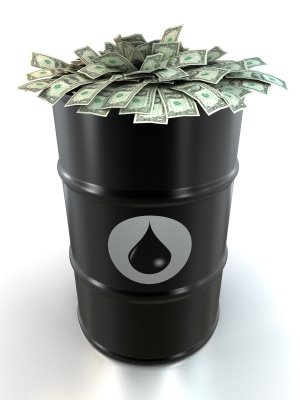Special topics
 It’s more than three years since the first oil poured out of Jubilee fields in the Tano basin, but despite the over 5.9 million barrels of crude oil harvested from the basin and the over US$903 million revenue that had accrued to the state as at August last year, Ghana pre- and post-oil seem to have recorded very little change.
It’s more than three years since the first oil poured out of Jubilee fields in the Tano basin, but despite the over 5.9 million barrels of crude oil harvested from the basin and the over US$903 million revenue that had accrued to the state as at August last year, Ghana pre- and post-oil seem to have recorded very little change.
Promises of creating jobs, turning Ghana into an industrial country on the back of the country’s oil find, of raising the standard of living of the population and putting up specific infrastructure to propel development in the country all appear quite distant now, with the initial euphoria over the discovery of petroleum now giving to doubts and lowered expectations among the public at large.
The promise of seeing 90% of all oil jobs going to Ghanaians by 2020 now appears like a long shot. .
The oil industry is also yet to stimulate some sectors of the economy, and has negatively affected livelihoods of fishermen in the area whose nets can become snagged on the rigs and sea floor installations.
Positive news about oil revenues continue to come. Official sources say that based on global crude oil’s seven-year moving average of $94.36 per barrel, the country is poised to harvest $581 million in petroleum revenues this year at a projected production of 83.341 barrels of oil per day (bopd).
Currently, the Jubilee field produces about 115 bopd as additional work on the oil wells started yielding positive results in the last quarter of 2012.
Ghana earns 5% of royalties, a carried interest of 10%, an additional or paying interest of 3.75%, and petroleum income tax of 35%, while additional oil entitlement also comes to the government, with the law allowing the International Oil Companies (IOCs) Hill cost recovery.
But members of an important state institution such as the Parliamentary Select Committee on Mines and Energy, and the Public Interest and Accountability Committee (PIAC) on Oil and Gas have raised questions over why the Ghana National Petroleum Corporation (GNPC) received over half of the country’s entire oil revenue for 2011 but was yet to account for a single Ghana cedi it has received from government’s oil receipt.
The point is also supported by the Africa Centre for Energy Policy-Ghana,a civil society organisation in the oil sector.
Other society activists who have studied the matter also point out that the impact of the oil revenues on the life of the people will be hard to tell as long as oil revenue expenditures in Ghana’s budget are not disaggregated.
“Once the oil revenues are not dis¬aggregated in the budget, it Will be difficult to tell how much has been allocated to the various sectors,” Mohammed Amin Adam, Africa against Poverty (AAP) Programme Co-ordinator at Ibis West Africa argued.
He says the current practice shows a superficial disaggregation involving the separation of consolidated fund amounts into oil revenue and non-oil revenue.
“The budget does not go beyond this to spell out how much of oil revenue is allocated to a particular sector,” he said.
Source: The Finder
Get the latest news and updates on Ghana’s oil and gas value chain by following us Reporting Oil and Gas on twitter @oilgasghana and like our facebook page and get at us on Google+. Subscribe to our group to get updates.